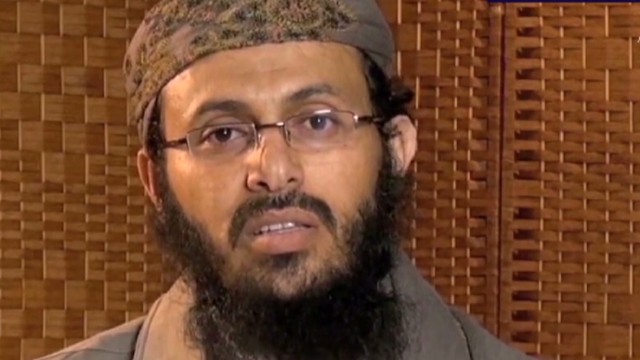It has long been said that in war, "truth is the
first casualty."
It is generally accepted,
however, that the United States, the world's leading democracy, should try to
make truth-telling a common practice when it goes to war.
When Gen. David Petraeus was U.S.
commander in Afghanistan in 2010 he issued
guidance to his troops, one of the key points of which was to "be first with
the truth." The guidance explained, "Avoid spinning, and don't try to 'dress up'
an ugly situation. Acknowledge setbacks and failures, including civilian
casualties, and then state how we'll respond and what we've learned."
Yet, in Yemen where the U.S. has
been fighting a small, undeclared war for the past four years, we have now
arrived at the ironic point where America's main enemy there, al Qaeda in the
Arabian Peninsula, is doing a better job of truth telling than the U.S.
In a video message released on
Sunday, a leader of al Qaeda in Yemen apologized for an attack on a hospital in
the Yemeni capital of Sanaa earlier this month in which civilians were
killed.
According to the al Qaeda leader,
the attackers were targeting the Yemeni Ministry of Defense, but one fighter
made a mistake and attacked a hospital inside the defense ministry: "We confess
to this mistake and fault. We offer our apologies and condolences to the
families of the victims," said
the al Qaeda leader.
While al Qaeda has publicly --
and, no doubt, self-servingly -- apologized for killing civilians at the Yemeni
hospital during the attack in Sanaa on December 5, at the same time American
officials have said nothing publicly about a U.S. drone strike that took place a
week later on a suspected convoy of militants in western Yemen on December
12.
The target of this strike turned
out to be a wedding party and at least a half dozen civilians are
reliably reported to have died.
This gets to a key problem of the
secretive American drone program. Its clandestine and unaccountable nature means
that when the U.S. does make a mistake, as it inevitably will, instead of
apologizing and making some kind of compensation to the civilian victims of a
botched strike -- a common practice when the U.S. military inadvertently kills
civilians in wartime -- American officials instead say ... nothing.
Or worse, they make claims that
the program is somehow perfect and never kills civilians as Obama's then top
counterterrorism adviser, John O. Brennan, improbably claimed of the drone program in June 2011 when he
said that for almost a year, "there hasn't been a single collateral death
because of the exceptional proficiency, precision of the capabilities we've been
able to develop." Brennan is now the CIA director.
Seeking to redress some of the
problems in the drone program, on May 23 President Barack Obama gave a major
speech about his counterterrorism policies in Washington in which he said,
"Before any strike is taken, there must be near-certainty that no civilians will
be killed or injured -- the highest standard we can set."
Did Obama's speech and the new
policy it sought to inaugurate make any difference to the drone program? Short
answer: Yes.
Since that speech the Obama
administration has dramatically cut the number of CIA drone strikes in Pakistan
and has slightly slowed the number of strikes in Yemen.
There were 14 drone strikes in
Pakistan during the past seven months; an average of one strike every 15 days.
In the year before Obama's speech, drone strikes happened every eight days. And
there have been no reliably reported civilian casualties in Pakistan from drone
strikes since Obama's May speech, according to an
analysis of the drone program by the New America Foundation.
The pace of
drone strikes fell in Yemen after Obama's speech, too, but not as much as it
did in Pakistan. Since May 23, there have been 16, an average of about one
strike every 13 days. During the previous year, a strike occurred about once
every 10 days.
It's worth noting that the
civilian death rate has fallen steadily overall in both Pakistan and Yemen over
the past several years, but the strike on December 12 in Yemen and the civilian
casualties it caused is a reminder that there is definitely room for
improvement.
What can be done?
One idea to make the drone
program as accountable as possible is to set up an internal U.S. government body
that is independent of the CIA and Pentagon that would conduct reviews of the
drone strikes after they have occurred.
One could imagine, for instance,
that a small, nonpartisan group of experts on security and law, similar to the
group that Obama appointed to analyze the activities of the NSA, could review
the aftermath of drone strikes to examine whether the victims of the strikes
were in fact militants who posed some kind of threat to the United States. Such
additional oversight would make CIA targeters and drone operators all the more
diligent to avoid mistakes.
cnn.com

No comments:
Post a Comment